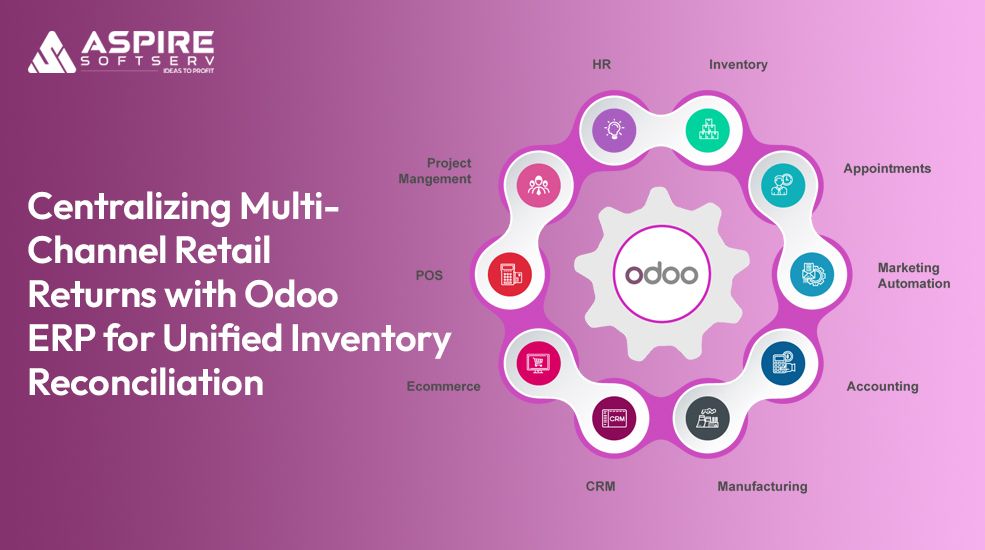
Introduction:
Implementing an enterprise resource planning (ERP) system is significant for any organization. In 2023, Odoo will be a leading choice for businesses seeking a comprehensive and scalable ERP solution. To ensure a successful Odoo implementation, careful planning and execution, including Odoo ERP customization , are crucial. In this blog post, we will provide you with a step-by-step guide tailored for 2023 to help you navigate the Odoo implementation process smoothly and maximize the benefits of this powerful ERP system.
Define Objectives and Scope:
Define your objectives for implementing Odoo. Identify the specific pain points you aim to address and the goals you want to achieve. Determine the scope of your implementation by outlining the modules and functionalities you will initially focus on. This step sets the foundation for a successful Odoo implementation.
Assemble an Implementation Team:
Formulate a dedicated implementation team comprising key stakeholders, including representatives from different departments. Assign roles and responsibilities, ensuring the team has the necessary expertise and authority to make decisions and drive the implementation forward. A collaborative and cross-functional team is essential for a smooth and well-coordinated implementation process.
Conduct a Thorough Business Analysis:
Conduct a comprehensive analysis of your existing business processes to identify areas where Odoo can bring value. Evaluate the gaps between your current operations and Odoo's capabilities. This analysis will help determine the customizations and configurations required to align Odoo with your business needs.
Customization and Configuration:
Utilize the flexibility of Odoo to customize and configure the system according to your business requirements. Work closely with your implementation team to map out your desired processes and workflows within Odoo. Identify the necessary customizations and create a detailed plan to implement them effectively while keeping future scalability in mind.
Data Migration and Integration:
Develop a data migration strategy to ensure a smooth transition from your legacy system to Odoo. Analyze your existing data, clean and format it, and map it to the corresponding Odoo data structure. Consider integrating Odoo with other systems such as CRM, e-commerce platforms, or third-party applications to streamline data exchange and achieve seamless information flow across your organization.
Training and Change Management:
Invest in comprehensive training programs to equip your employees with the knowledge and skills required to utilize Odoo effectively. Conduct training sessions tailored to different user roles and provide ongoing support to address questions or concerns. Additionally, focus on change management strategies to ensure the smooth adoption of Odoo throughout your organization, emphasizing the benefits and addressing any resistance to change.
Testing and Quality Assurance:
Thoroughly test the configured Odoo system before the go-live phase. Conduct various scenarios and workflows to ensure the system performs as expected and meets your business requirements. During the testing phase, pay attention to data integrity, functionality, and user experience. Make necessary adjustments and improvements based on the feedback and results obtained.
Read More: 5 Common Mistakes to Avoid When Implementing Odoo
Go-Live and Post-Implementation Support:
After successful testing, it's time to go live with Odoo. Plan and execute the cutover from your legacy system to Odoo, ensuring minimal disruption to your operations. Monitor the system closely during the initial period, addressing any issues that may arise promptly. Provide post-implementation support to your users, offering assistance and guidance as they navigate the new system.
Conclusion:
By following this comprehensive Odoo implementation guide, tailored for 2023, you can embark on a successful journey to leverage the full potential of this powerful ERP system. Remember to define your objectives, assemble a capable team, conduct a thorough analysis, customize and configure Odoo to align with your business needs, migrate and integrate your data, provide training and change management support, conduct testing, and ensure a smooth go-live. With careful planning and execution, your Odoo implementation will set the stage for improved efficiency, streamlined processes, and business growth. Ready to optimize your business with Odoo? Contact us today to explore how our expert team at [email protected] can guide you through a seamless Odoo implementation, tailored to your unique requirements.
Frequently Asked Questions:
Why should you hire an Odoo partner?
Hiring an Odoo partner ensures expert implementation and ongoing support for your Odoo software, maximizing its effectiveness for your business.
Why should my company consider implementing Odoo in 2023?
Odoo offers several benefits, including increased efficiency, streamlined operations, improved collaboration, and better customer management. Implementing Odoo in 2023 can help your company stay competitive, enhance productivity, and drive growth.
What ongoing support and maintenance are required after Odoo implementation?
After implementation, it's essential to have a support plan in place to address any technical issues. We provide user assistance and implement updates or upgrades. Regular system maintenance, data backups, and periodic training sessions are also recommended to maximize the benefits of Odoo.
What are some key considerations for choosing an Odoo implementation partner?
When selecting an implementation partner, consider their experience and expertise in Odoo implementation, industry knowledge, client testimonials, and ability to understand and address your business requirements. Choosing a partner that can provide ongoing support and assistance post-implementation is important.



